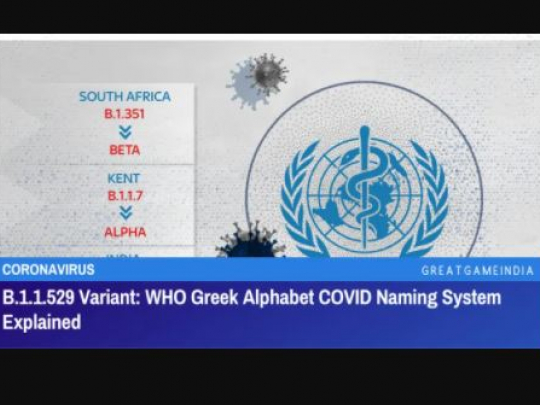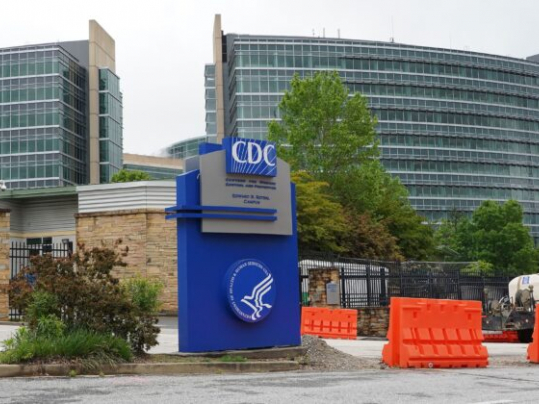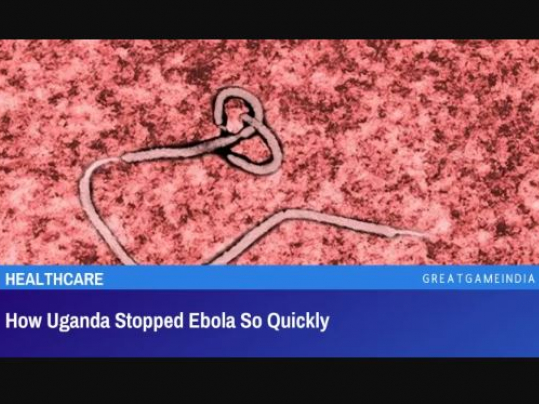B.1.1.529 Variant Omicron: WHO Greek Alphabet COVID Naming System Explained

A new version of COVID-19 has appeared in Botswana, South Africa and Hong Kong, which has been found to be “heavily mutated”, prompting the World Health Organization to hold a crisis meeting on Friday. Here is how the WHO Greek alphabet COVID naming system works.
At the WHO meeting, the delegation discussed variant B.1.1.529 and its effects on vaccines, new clinical trials and drug treatment.
The entity determined that the variant, B.1.1.529, is of concern, and it should be given Greek names such as Delta, Alpha and Beta, it’s ancestors.
Variant B.1.1.529 has already been called “Nu” in some constituencies, but it is not its official name. Nature dictates Nu is the viable option because it is the next letter in the Greek alphabet.
However, the Technical Advisory Group on SARS-CoV-2 Virus Evolution (TAG-VE) has advised WHO that this variant should be designated as a VOC, and the WHO has officially named variant B.1.1.529 as Omicron.
Critics have raised questions over why the WHO didn’t nane the variant as Nu, which was next logical option. There were also allegations that the WHO actually did it to skip Xi, after Nu variant, which may bring attention to the Chinese president.
On May 31, 2021, the WHO introduced the Greek name agreement for various interests and issues related to Covid. The idea is to have a label that is easy to say and remember.
Labels do not change the scientific name of the variant. The beta version, which appeared in South Africa during the second wave of 2020, is still called 501Y.V2, B.1.351, 20H / 501Y.V2 or GH / 501Y.V2, according to researchers.
These names, provided by scientific organizations such as GISAID, Nextstrain and Pango, convey important information and are still used in research. But scholars also use the Greek name, especially when communicating with the public.
The naming system was created to prevent geographical points associated with the COVID type. When the beta first appeared, many media outlets and even some researchers called it the “South African variant”.
Virus names can be confusing if based on geographical areas, by nature, especially in areas where more than one variant is present. The “South African version” can now refer to Beta or B.1.1.529, which is shown as an example.
Nature has reported that the use of geographical names has prevented some countries from running tests on the new variants to avoid the risk of defamation.
Tulio de Oliveira, a biotechnologist and head of the KwaZulu-Natal Innovation and Sequence Research Platform for Durban, South Africa, told the newspaper in June: “The geographical names, we have to stop with that—really.”
He added that he was aware of African countries where health ministers were scared to announce new discoveries of new variants for fear of turning their country into an outcast.
Before the WHO decided to use the Greek alphabet, the WHO consulted with geneticists, researchers and national authorities, along with experts working on the current naming system.
However, there are only 24 letters in the Greek alphabet, there is a strong possibility that the WHO may run out of its names due to the variants. They already exhausted 12 letters till the point of September, with the name Mu.
After B.1.1.529 is presented in Greek at the Friday meeting, only 11 letters remain.
Maria Van Cerro, technical director of the World Health Organization for COVID-19, told The Telegraph in August that the organization was already considering plans to name the next Covid-19.
One option is to name this option to honor the constellation and base it off on them, Van Karcho said. So in the future we may see announcements for Delta, Alpha and Beta as well as Taurus, Gemini or Orion.
- Source : GreatGameIndia


















